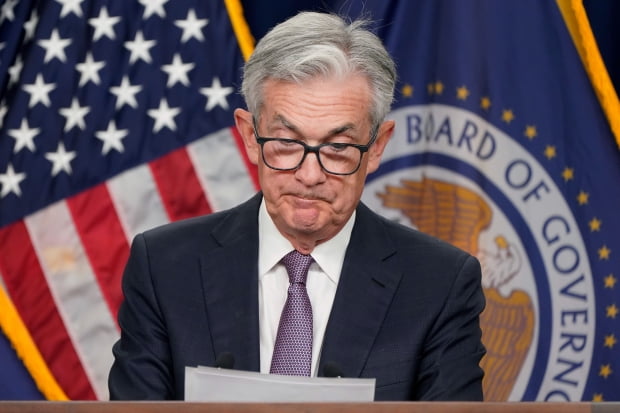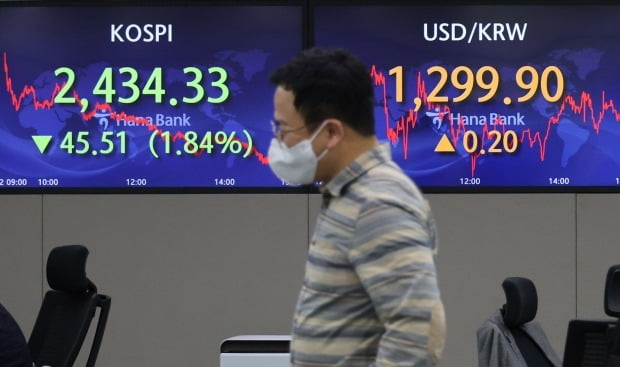This week (December 5-9), expectations for a pivot (change in monetary policy direction) in the domestic equity market should continue ahead of the Federal Open Market Committee (FOMC) scheduled for mid-month. As Jerome Powell, chairman of the Central Bank of the United States (Fed), made a “pigeonist remark,” the prospect that the Fed will stop its “leap (raising interest rates by 0.75 percentage points at a time) ” and will raise interest rates by 0.5 percentage points is expected and is very likely to come true.
According to the financial investment industry on the 4th, the KOSPI is expected to move between 2420 and 2540 this week.
Last week (November 28-December 2), the KOSPI closed at 2434.33, down 7 points (0.29%) from the previous week. That week, the index fluctuated repeatedly due to China’s Corona 19 quarantine policy and US Central Bank (Fed) Chairman Jerome Powell’s remarks to adjust the pace of the tightening. The KOSPI soared above the 2500 line during the intraday on “Powell’s word” that “I don’t want too much tightening” but gave back most of the rise on uncertain economic outlook and purpose selling of profit.
Looking at supply and demand, foreign investors alone bought 709.8 billion won in net buys over five trading days last week, while individuals and institutions sold 18.4 billion won and 727.2 billion won, respectively. billion won.

This week, the equity market should continue to wait for the last FOMC of the year and anticipate a pivot. Of course, the November consumer price index (CPI), which is due to be released on the 13th of this month (local time), may be a variable in the Fed’s decision to raise interest rates. The next day, on the 14th, the regular meeting of the FOMC will be held.
Some expect the top end of the index to be capped as net purchases by foreigners, whose credit on foreign exchange earnings has diminished due to the strong won, gradually moderate. Last week, the won-dollar exchange rate fell to 1,200 won for the first time in four months. In the last two days it closed at 1299.9 won.
Kim Young-hwan, researcher at NH Investment & Securities, said: “As Chairman Powell suggested for the FOMC in December, investors are likely to remain optimistic about Fed policy for now if inflation does not significantly exceed expectations. “. the merits of foreign exchange earnings decline due to the sharp appreciation of the won, there is the possibility that the net purchases by foreigners, which drove the recent rally in the Korean stock market, will gradually moderate.
The prospect that the Fed will release the result of slowing the pace of interest rate hikes at the FOMC in December has become somewhat of a fait accompli via Powell’s speech this time around. According to stock market analysis, the problem is not the range of interest rate hikes, but the “final level of interest rates.”
While the job market is solid, it is difficult to figure out the level of the Fed’s final interest rate due to mixed economic indicators such as signs of recession appearing in various places.
Yumi Kim, a researcher at Kiwoom Securities, opened up the possibility that the final level of interest rates would be higher than expected, saying, “The remaining inflationary (inflationary) pressure in the labor market and the slowdown in demand from manufacturing activities will inevitably give the Problems with the Fed on the direction of its monetary policy”.
Reporter Shin Hyun-ah, Hankyung.com [email protected]


